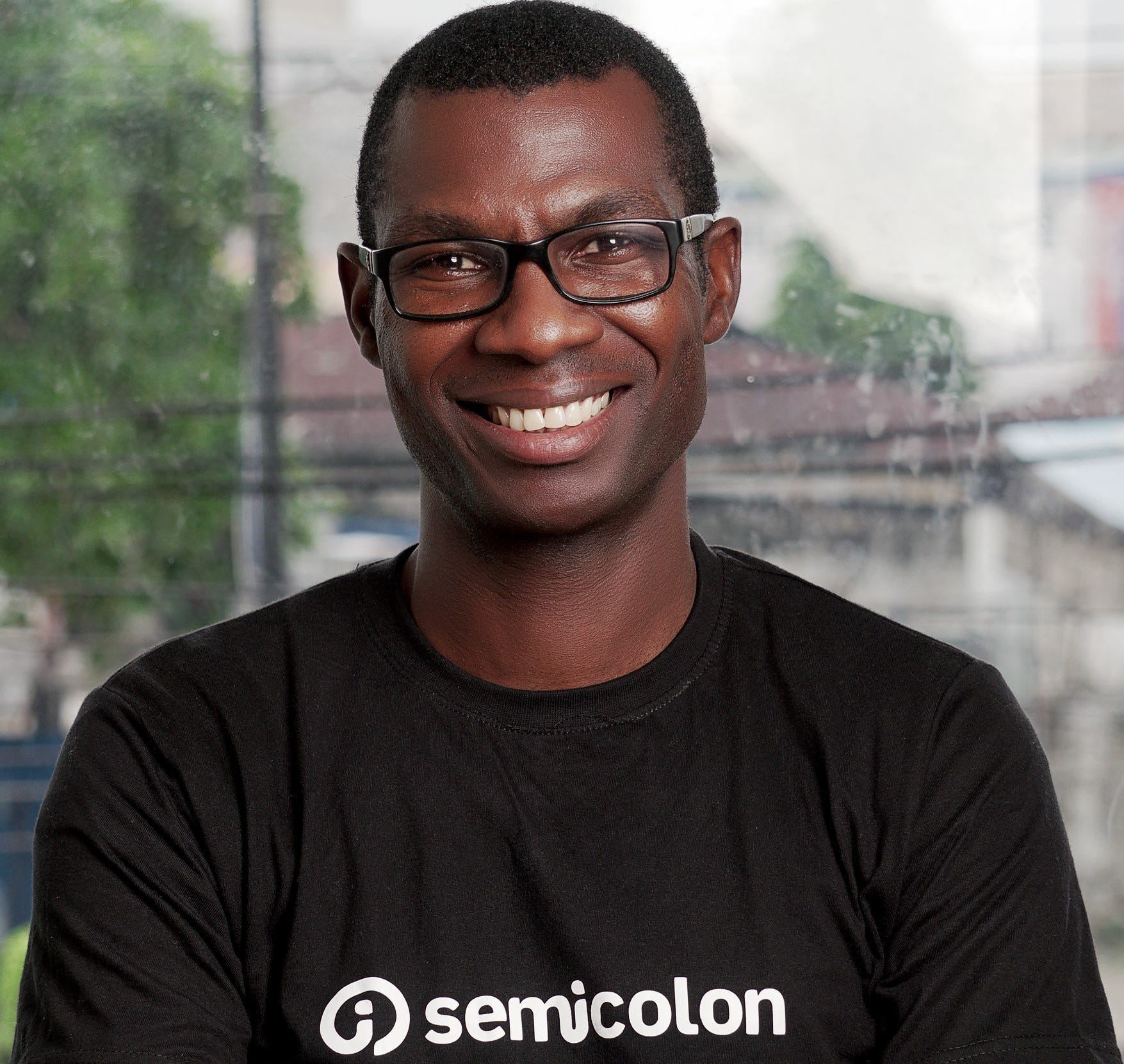Semicolon Africa was founded in 2019 by Sam Immanuel; a software engineer, passionate about people and economic development.
The mission of Semicolon is to develop a generation of software engineering talent that will solve problems and create economic opportunities by addressing tech-skill gaps, nurturing talent, fostering innovation, and building a thriving tech ecosystem.
The enterprise offers a one-year intensive training program that is focused on problem-solving, software engineering, and business management skills. Upon completion, Natives (as the students are called) have one of two career paths – employment with hiring partners or technopreneurship for those with ideas they want to turn into businesses. Since its inception, Semicolon has onboarded nine cohorts and graduated four cohorts of software engineers.
Semicolon Ventures, a business branch of Semicolon, helps techpreneurs turn their ideas into blustering enterprises. Semicolon Ventures has already spawned 20 new startups. Healthcare, finance, transportation, construction, education, insurance, tourism, and other industries are all represented by startups.
Semicolon Africa’s mission is to develop a generation of software engineers that will solve problems and create economic opportunities by nurturing talent, fostering innovation, addressing tech-skill gaps, and building a thriving tech ecosystem.
It offers a one-year intensive training program that is focused on software engineering, problem-solving, and business management skills.
When the training program is completed, the students (called Natives), have the choice of either securing employment with hiring partners or becoming techpreneurs if they have ideas they intend to turn into businesses.
Since its inception, the ed-tech startup has inducted eight cohorts and graduated four cohorts of software engineers.
In addition to training software engineers and techpreneurs, Semicolon Africa, through Semicolon Labs, also serves as a strategic partner and renders services such as corporate training, project delivery, and project outsourcing to companies seeking a digital transformation of their operations.
How it Works
Semicolon addresses the problem of youth unemployment by training software engineers and techpreneurs to enable profitable and inclusive economic growth.
Their admission process is rigorous but fun and straightforward. Click the ‘Become a Native’ and fill in your details to begin your application. Their program runs for 12 months.
At the moment, the fee is ₦4,300,000 inclusive of VAT and covers meals, healthcare insurance, learning materials, and a laptop.
SWIT is Semicolon Women in Tech community, aimed at advancing women for tech opportunities through varied programs, mentorship, and community networks.
Founders
Sam Immanuel

Sam Immanuel is the Founder & CEO at Semicolon.
He attended Imperial College London in 2006.
Investors & Funding Rounds
Launch Africa
Semicolon Africa has closed a $1.2M Seed round of funding. Semicolon is focused on preparing young people and companies in Africa for the digital economy by providing the requisite technology skills for Africa’s growing tech industry.
The round which was oversubscribed had participation from angels and VCs like Launch Africa Ventures and Consonance Investment Managers.
The acquired fund will be used by Semicolon to increase its training, talent management, and project delivery capacity.
In 2020, Google and the International Finance Corporation (IFC) in a joint report disclosed that there are only 690,000 professional developers in Africa and that the top training pathways were being self-taught and through university programs.
This figure represents 0.2% of the 1.3 billion people on the continent. The report reinforces the need to grow more tech talent to strengthen the ecosystem that is capable of changing the course of Africa’s history.
Semicolon is bridging this gap, and it is, therefore, no exaggeration to say that it is just getting started. They know that unemployment, as a whole, on the continent is far from solved, but with the infusion of this capital, the startup believes that the numbers can reduce.
Semicolon currently provides the critical support needed for techpreneurs to develop their startup ideas into blustering businesses. This cuts across early business support, product development, advisory, and training.
Hence, the company is also renewing its focus on Semicolon Ventures; an arm of the business that has already birthed 20 new startups from its students.
The startups which cut across diverse sectors like finance, healthcare, insurance, transportation, education, construction, tourism, etc., are using technology to address a variety of problems and also create job opportunities.
Beyond training software engineers and techpreneurs, Semicolon also serves as a strategic partner to companies seeking a digital transformation of their operations.
Some of the services they render include corporate training, project delivery, and project outsourcing, which are carried out through Semicolon Labs.
Semicolon Africa hopes to expand to become the largest technology capacity-development hub in Africa’s ecosystem; with plans to empower and deploy thousands of skilled software engineers annually.
It plans to empower and deploy thousands of skilled software engineers yearly and hopes to grow and become the largest technology capacity-development hub in the continent’s ecosystem.
The startup wants to bridge the gap in digital training in Africa which currently has a low count compared to other parts of the world where the number is high; as well as solve unemployment issues.
This is as a joint report by Google and the International Finance Corporation (IFC) in 2020 disclosed that there are only 690,000 professional developers in Africa compared to the US with over 3.87 million.
While there is a need to grow more tech talent to strengthen the ecosystem that is capable of changing the course of Africa’s history, most training pathways for professional developers in Africa are being self-taught and not through university programs.
Main Competitors
ZeroEyes: This is an AI security company that detects the weapon and sends an alert to prevent and stop active shooter threats.
Oxio: It is a connectivity platform for the internet that changes the way people connect with their internet service provider (ISP).
Garma Intelligent Technologies Inc: This is a company that develops, manufactures, and sells intelligent surveillance cameras.
Related:
Afriwise: Story, Founders, Investors & Funding Rounds